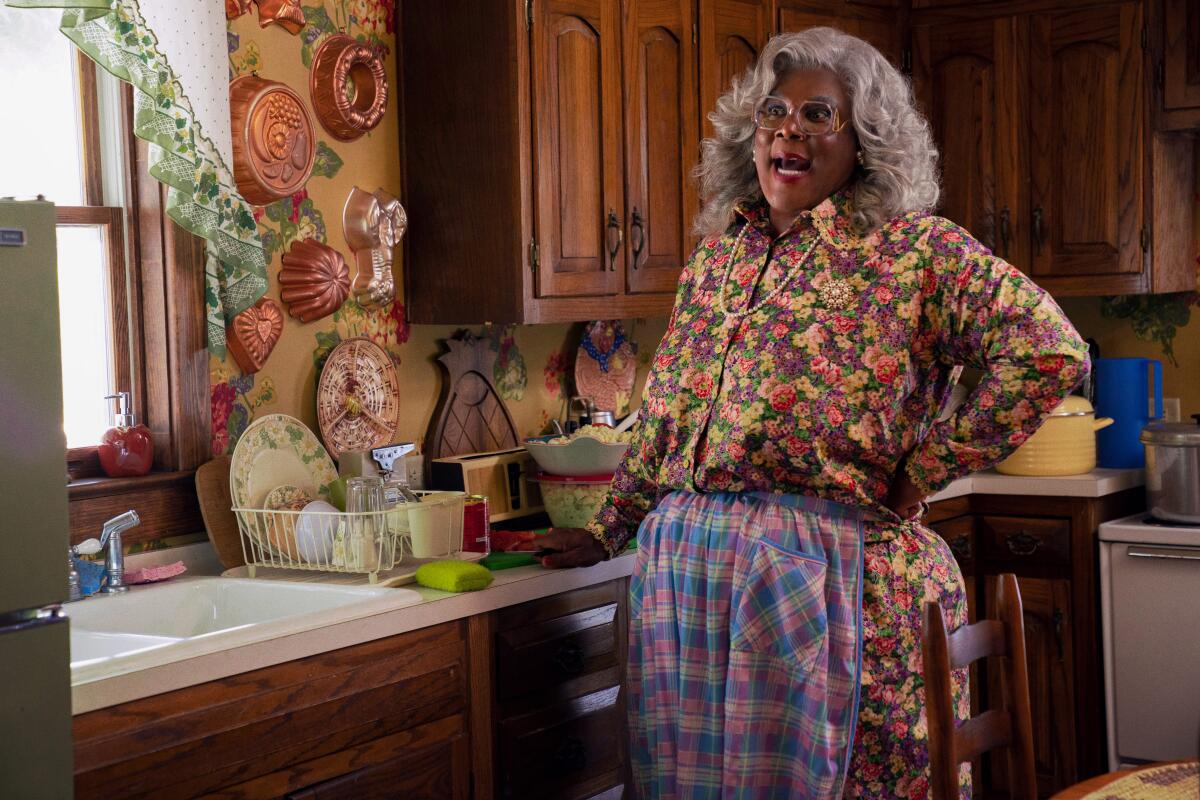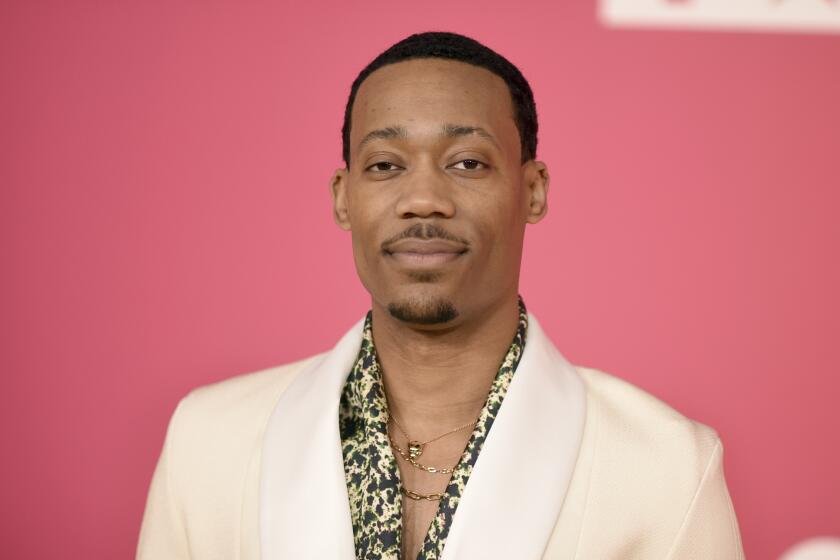Column: Tyler Perry’s Madea and the war on drag

- Share via
If you want to know just how stupid the current campaign against drag really is, I present to you Mabel Earlene Simmons.
She was born on June 26, 1935, in a small town about an hour outside of Baton Rouge, La. Her family moved to New Orleans not long after, before settling in Atlanta when Simmons was a teen. Unfortunately her rap sheet came with them — something she started building at age 9. Mostly petty crimes, although her temper has led her into deep trouble a few times. Road rage is how Simmons ended up in the slammer back in 2009. It was documented in a movie. Perhaps you’ve heard of it: “Madea Goes to Jail.”
Opinion Columnist
LZ Granderson
LZ Granderson writes about culture, politics, sports and navigating life in America.
In fact, Madea’s life has been the focus of a number of movies — grossing more than $1 billion in ticket sales in the process. Her book “Don’t Make a Black Woman Take Off Her Earrings: Madea’s Uninhibited Commentaries on Love and Life” topped the New York Times Best Seller list. She’s done theater and sitcoms.
And now … Madea is rumored to be buying a couple of TV networks.
This week reports surfaced that Tyler Perry, the billionaire producer who created the Madea character in the late 1990s and performs in her persona, is finalizing a deal to acquire majority ownership of BET and VH1. If true, this would make Perry the first Black person to own two networks. Combine that with the movie studio he opened in 2019, and it’s easy to see why Perry — who once was homeless — is considered to be one of the most inspiring faces in Hollywood.
“The truth is I had to imagine myself in a better place,” he wrote in his autobiography, “Higher Is Waiting.” “Because sometimes the nights got so cold and the days so hard, if I didn’t dream of better times, I wouldn’t have made it.”
Speculation about the sexuality of the ‘Abbott Elementary’ star prompted an insightful take on the cruel effects of policing masculinity.
Starting with the touring play “I Can Do Bad All by Myself” in 1999, the mogul has put on a wig, makeup and dress to entertain children and adults alike for more than 20 years — and you know what, America loves it. Madea’s first film, “Diary of a Mad Black Woman,” opened at No. 1 in 2005. Her latest, “A Madea Homecoming,” came out on Netflix last year. In between was a Madea cartoon and a farewell tour. At one stop, the cast broke out into hymns — because Christianity is a big part of Perry’s life and thus the MCU (Madea Cinematic Universe). Yes, despite Madea’s potty mouth, violent tendencies and graphic tales of her days as a stripper, faith and family are central to her ecosystem.
Perry’s brand of drag doesn’t come with the celebration of queerness modern Americans associate with the word, but that isn’t unique to him. From soldiers performing in drag to entertain each other during World War II to iconic comedians such as Bob Hope and Eddie Murphy, society has always been willing to embrace men dressed as women for laughs just as long as the men in question were presumed to be straight.
That’s how you know the legislative attacks on drag are nothing but a Trojan horse.
The PR fiascoes of the Dodgers, Target and Bud Light have all shown there’s no neutral position in today’s culture wars.
Conservatives speak of protecting children, but laws aimed at drag are really about weaponizing homophobia and transphobia to score political points. We know this because “Mrs. Doubtfire” was a hit family movie. We know this because Bugs Bunny is a beloved cartoon character — drag personas and all. We know this because Perry is in the position to buy two networks thanks in large part to his alter ego. The truth is if seeing men in women’s clothing really turned people queer, M*A*S*H would be on the rainbow flag.
“My mother was the inspiration for all my Madea stories,” he wrote. “I was given the grace to be able to take care of my mother in her later years. As I explained previously, I made a vow as a young boy: ‘One day I’m going to give Mamma all she needs and deserves.’ Thanks to the blessings of grace, I was able to keep my vow.”
The blessings of grace … and the universal appeal of drag.
More to Read
A cure for the common opinion
Get thought-provoking perspectives with our weekly newsletter.
You may occasionally receive promotional content from the Los Angeles Times.














